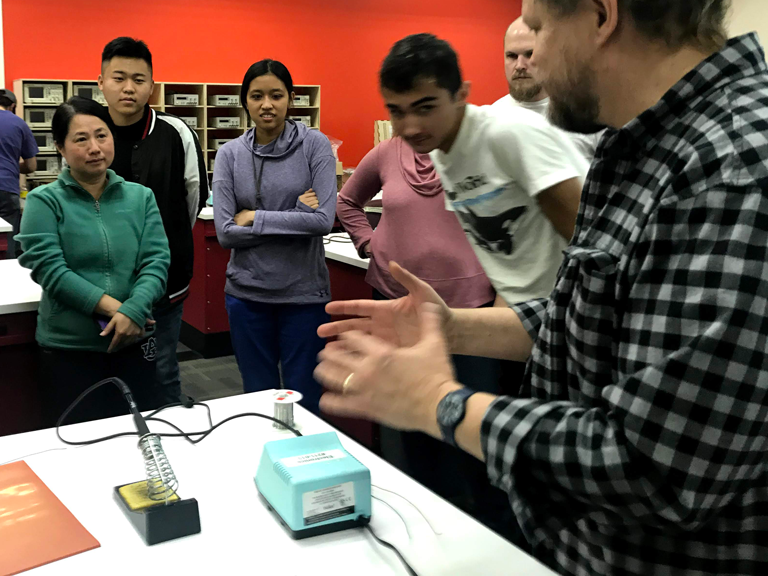Introduction to Electronics
 ELTN 130 introduces students to the field of electronics, with emphasis on devices
and circuits, and the theoretical background on application of these components. Theories
covered in lectures include atomic structures, electric charge, current, voltage,
alongside concepts central to real-world circuit building. Students will learn basic
lab skills such as reading schematic diagrams, prototyping circuits, and operating
common lab equipment including digital multimeters, power supplies, oscilloscopes,
and signal generators. Students who complete the course will understand common circuit
component behavior for the purposes of evaluating real-world applications. They will
also receive an introduction to microprocessors, digital circuits, and basic motor
controls.
ELTN 130 introduces students to the field of electronics, with emphasis on devices
and circuits, and the theoretical background on application of these components. Theories
covered in lectures include atomic structures, electric charge, current, voltage,
alongside concepts central to real-world circuit building. Students will learn basic
lab skills such as reading schematic diagrams, prototyping circuits, and operating
common lab equipment including digital multimeters, power supplies, oscilloscopes,
and signal generators. Students who complete the course will understand common circuit
component behavior for the purposes of evaluating real-world applications. They will
also receive an introduction to microprocessors, digital circuits, and basic motor
controls.
Student Learning Outcomes (SLOs)
- Effectively communicate technical information both verbally and in written material using appropriate electronics terminology.
- Demonstrate the use of critical thinking skills to evaluate electronics problems at the appropriate level.
- Analyze electronics problems and formulate ideas and concepts leading to their solutions.
- Demonstrate appropriate physical hands-on skills and tool usage required in the electronics industry.
